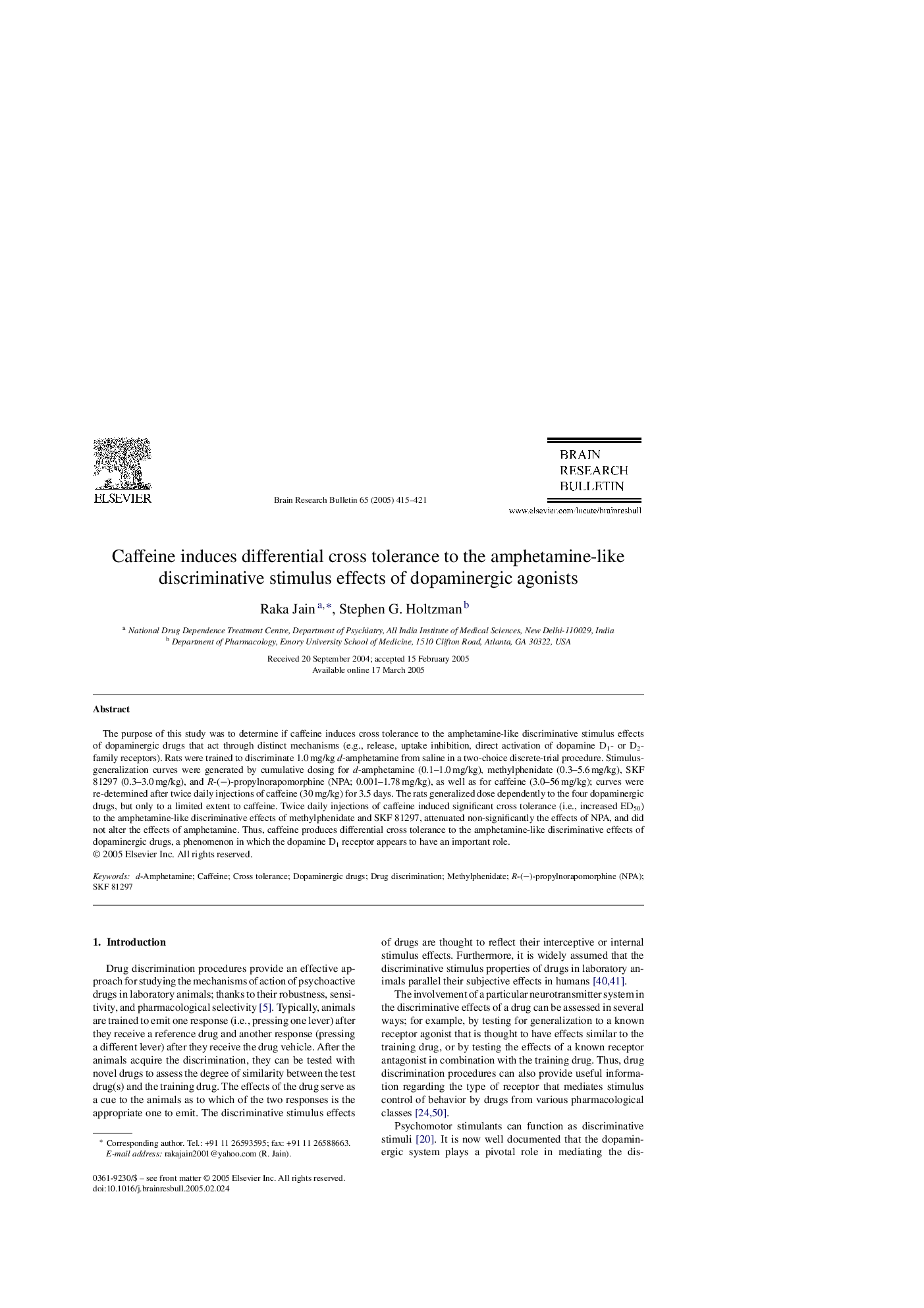| Article ID | Journal | Published Year | Pages | File Type |
|---|---|---|---|---|
| 9409617 | Brain Research Bulletin | 2005 | 7 Pages |
Abstract
The purpose of this study was to determine if caffeine induces cross tolerance to the amphetamine-like discriminative stimulus effects of dopaminergic drugs that act through distinct mechanisms (e.g., release, uptake inhibition, direct activation of dopamine D1- or D2-family receptors). Rats were trained to discriminate 1.0Â mg/kg d-amphetamine from saline in a two-choice discrete-trial procedure. Stimulus-generalization curves were generated by cumulative dosing for d-amphetamine (0.1-1.0Â mg/kg), methylphenidate (0.3-5.6Â mg/kg), SKF 81297 (0.3-3.0Â mg/kg), and R-(â)-propylnorapomorphine (NPA; 0.001-1.78Â mg/kg), as well as for caffeine (3.0-56Â mg/kg); curves were re-determined after twice daily injections of caffeine (30Â mg/kg) for 3.5 days. The rats generalized dose dependently to the four dopaminergic drugs, but only to a limited extent to caffeine. Twice daily injections of caffeine induced significant cross tolerance (i.e., increased ED50) to the amphetamine-like discriminative effects of methylphenidate and SKF 81297, attenuated non-significantly the effects of NPA, and did not alter the effects of amphetamine. Thus, caffeine produces differential cross tolerance to the amphetamine-like discriminative effects of dopaminergic drugs, a phenomenon in which the dopamine D1 receptor appears to have an important role.
Keywords
Related Topics
Life Sciences
Neuroscience
Cellular and Molecular Neuroscience
Authors
Raka Jain, Stephen G. Holtzman,
